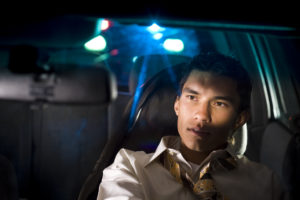Most of the sobriety tests you may see in a TV show or movie are not the type of sobriety tests that are actually completed by the professionals. In fact, there are only a few types of field sobriety tests that police should be giving drunk drivers. Specifically, the National Highway Traffic Safety Administration only has three tests they consider standard.
Non-standard field sobriety tests often do not stand up in court and can lead to DUI charges being dropped. Continue reading to learn more about standard and non-standard tests, then contact Law Office of Michael L. Fell at (949) 585-9055 if you have bene accused of a DUI of other crime in California.
The Three Standardized Field Sobriety Tests
The NTHSA considers three field sobriety tests to be standard. They are:
- HGN. The horizontal gaze nystagmus, or HGN, is based on the fact that if a person is sober, their eyes will generally move side to side smoothly. They only follow a jerky motion if there is an extreme angle. However, after a person has been drinking alcohol, their eyes may be jerkier. HGN is the name of this jerky eye movement. To perform the test, the officer will hold up a small flashlight and have you follow it without moving your eyes. If your eyes are able to follow it smoothly, then they may determine that you are likely not inebriated.
- Walk and turn. The officer uses this test to check your cognitive function, balance, and coordination. Generally, it involves walking nine steps, touching your heel to the toes of your other foot. You then turn and return the same way. If you can follow these directions accurately, take the right number of steps, and do not lose your balance, then you will not be showing the signs of inebriation.
- A one-leg stand. The officer may ask you to stand on one foot while holding the other about six inches off the ground. They will then ask you to stat counting with 1,000 and continue until they tell you to stop. If you sway, use your arms to balance, or put your foot down, they may determine that you are likely to have a high blood alcohol concentration.
You Are Not Required to Submit to a Field Sobriety Test
The fact that most people do not realize about these tests is that you are not required to complete them. This is often confused with a breathalyzer or blood test, which you are required to take if the police officer feels they have reasonable doubt as to your sobriety. We recommend that you don’t submit to a field sobriety test. Instead, politely refuse and then stay silent.
If you have been arrested for a DUI based on a field sobriety test then there is a good chance we can show how faulty this evidence often is. Call Law Office of Michael L. Fell at (949) 585-9055 to speak to an attorney who can help you.


